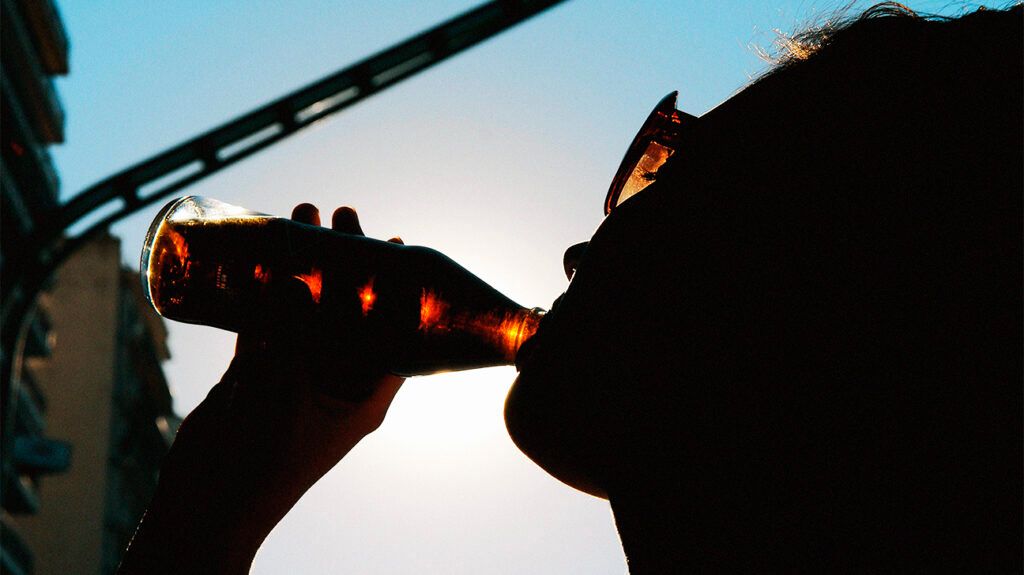Hiccups are uncontrollable muscular spasms of the diaphragm. These spasms send sudden rushes of air into the lungs, causing rapid closing of the glottis and the distinctive ‘hic’ sound.
The glottis is the opening between vocal folds in the larynx–a hollow tube in the middle of the neck. Most people experience hiccups from time to time. They can be uncomfortable and sometimes embarrassing, but they are usually short-lived.
Recurring or long-term hiccups can indicate a serious underlying cause, such as neurological damage. For this reason, people should seek medical help if they last for more than 48 hours.
In this article, learn more about what causes hiccups, how to stop them, and when to see a doctor.

The
When a person breathes in, they use the intercostal muscles (between the ribs) and the diaphragm (a dome-shaped sheet of muscle below the lungs).
Usually, when a person takes a breath, the diaphragm pulls down to draw air into the lungs. As they breathe out, the diaphragm pushes up to expel the air.
When a person has hiccups, the diaphragm contracts and pulls down, drawing in air between breaths. Immediately after this, the windpipe closes for a moment to prevent more air from entering the lungs. This produces the characteristic “hic” sound.
There is often no clear reason for getting the hiccups. However, there are several common triggers that people may find cause hiccups.
After eating or drinking
Hiccups often come after eating or drinking too much or too quickly. The stomach, which is directly below the diaphragm, becomes distended. This irritates the diaphragm and causes it to contract, as it does when we breathe in.
Other digestion-related activities that may trigger hiccups include:
- gulping soda
- heartburn or acid reflux
- consuming alcohol
- smoking a lot
- swallowing air, including during hyperventilation
Emotional triggers
Sometimes, hiccups occur due to a disturbance in the nerve pathways that lead from the brain to the muscles between the ribs.
This can cause short-term hiccups following:
- an emotional shock or stress
- excitement
- an abrupt change in temperature, such as by taking a cold shower
Other reasons
Hiccups can also occur when a person:
- overstretches their neck, such as when shaving
- takes certain medications
- needs anesthetics during surgery
Medications that can lead to hiccups include:
- some chemotherapy drugs
- benzodiazepines for anxiety
- opioid pain relief medication
“Persistent” hiccups are those that last for longer than
Sometimes, an episode of hiccups can last for longer than 2 months. Doctors call these “intractable” hiccups.
This could be due to a problem with:
- the brain or spinal cord
- the structures around the diaphragm or chest wall
- blood composition, such as abnormal blood calcium levels
- the stomach, if it presses on the diaphragm
Hiccups can be a symptom of an underlying health problem. For example, they are a common occurrence in gastroesophageal disease. Some people with cancer might also experience frequent hiccups. This may be due to their symptoms or some aspects of their treatment plan.
A wide range of
- Infections: Examples include shingles, herpes simplex, and malaria.
- Neurological conditions: Examples include aneurysm, stroke, Parkinson’s disease, and multiple sclerosis.
- Ear, nose, and throat problems: Examples include cough, having a hair in the throat, and recent intubation.
- Respiratory conditions: Examples include pneumonia, asthma, and bronchitis.
- Metabolic disorders: Examples include diabetes, uremia, and hyponatremia.
- Cardiovascular disorders: Examples include heart attack and pericarditis.
Complications
Persistent hiccups can lead to:
- embarrassment and a reduced quality of life
- nausea
- weight loss
- sleep loss
- fatigue
- dehydration
- sadness, anxiety, and depression
Both the causes and the impact of long-term hiccups can be severe.
Learn more about what hiccups are and why they happen here.
People use various remedies for curing short-term hiccups. People may find that some of the below help, but these are not fool-proof treatments.
- Hold the breath for a short time.
- Pull the knees up to the chest and lean forward.
- Breathe into a paper bag.
- Take a few sips of ice cold water.
- Have a taste of lemon or vinegar.
- Swallow a little granulated sugar.
- Drink a glass of water.
- Hold a cold compress to the face.
- Experience a sudden fright.
Learn more about how to get rid of hiccups here.
Things to avoid
The following methods are not suitable for stopping hiccups:
- consuming alcohol, hot drinks, or sodas
- chewing gum or smoking
- eating spicy food
- eating food quickly
- eating something hot followed by something cold
These techniques may make hiccups worse.
People should see a doctor if:
- hiccups last for longer than 48 hours
- they happen often
- they affect a person’s comfort and quality of life
If a person has persistent hiccups, a doctor may:
- identify and treat any underlying causes
- change their medication
- prescribe medication to relax the muscles
- treat symptoms, such as by prescribing medication to reduce feelings of nausea
Various drugs can help relieve hiccups. For example, injecting 25–50 milligrams of a drug called chlorpromazine has proven effective in 80% of cases.
In severe cases, a doctor may even recommend surgery.
